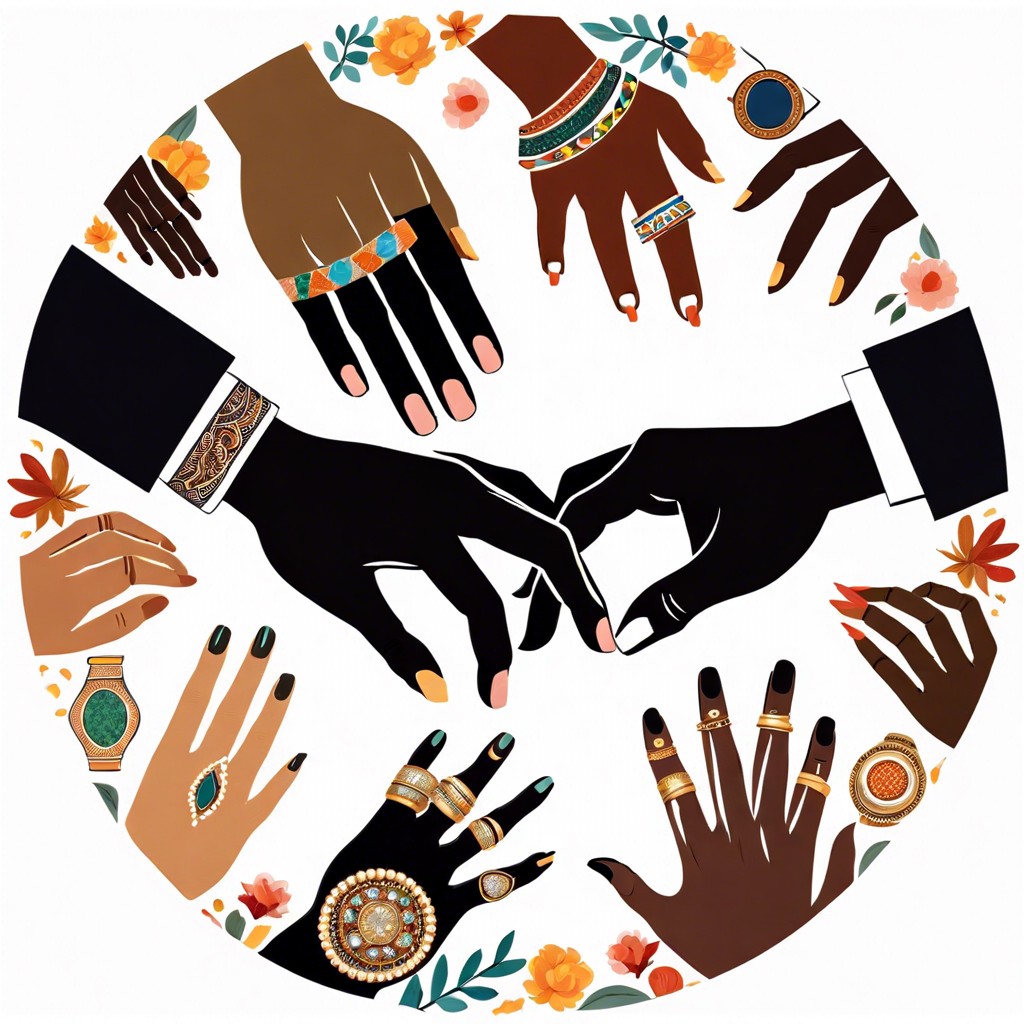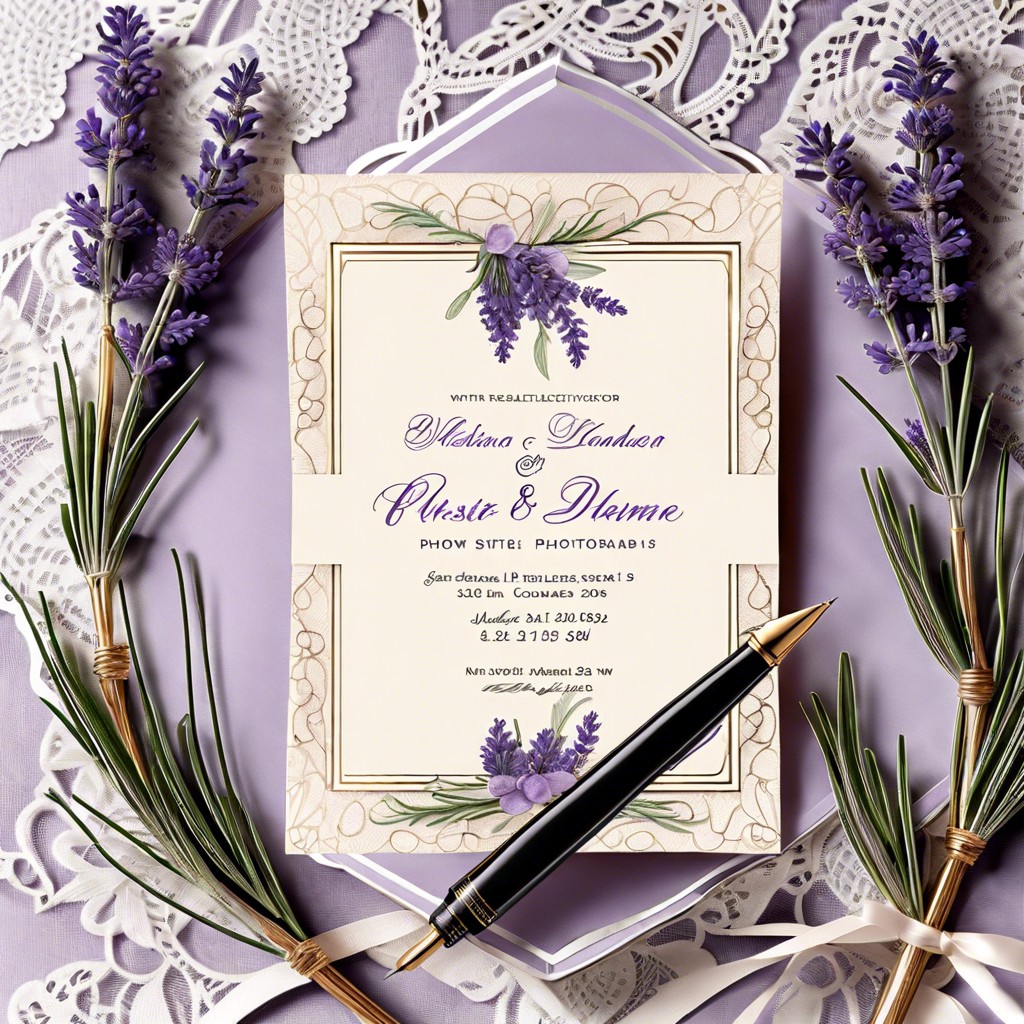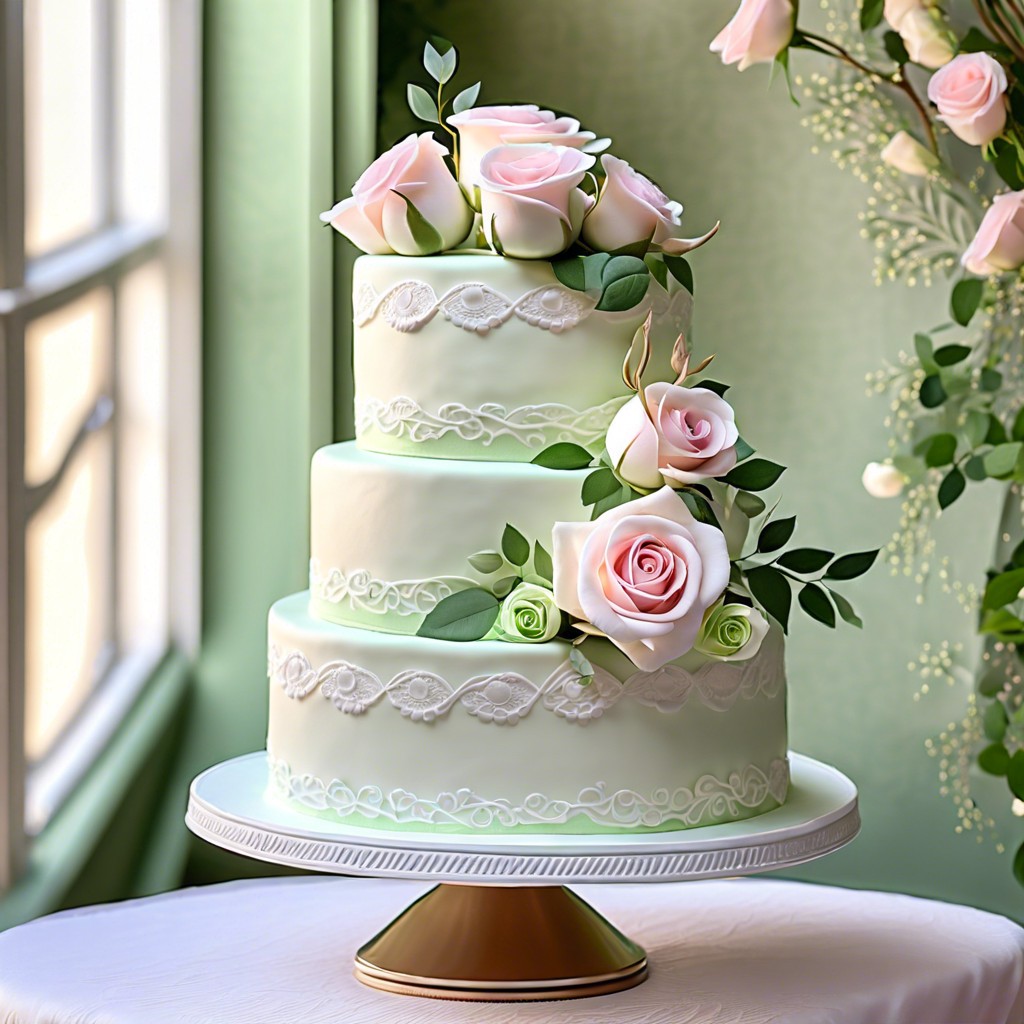This article delivers practical guidance on writing meaningful wedding vows that resonate with a couple’s unique love story.
Key takeaways:
- Reflect on partner’s significance, express promises for the future.
- Include personal story, acknowledge support through challenges, conclude with shared aspirations.
- Stay true to yourself, find balance between romantic, practical, and personal.
- Structure vows with clear beginning, middle, and end. Practice out loud.
- Coordinate with partner on tone and length, write from the heart.
Wedding Vow Template

Begin by reflecting on your partner’s significance in your life. This sets a foundation of appreciation and respect.
Express your promises for the future. These vows are, after all, commitments you’re making to each other.
Include a personal touch with a story or anecdote that captures your relationship’s essence, providing a unique depth to your vows.
Acknowledge the support you’ll offer each other through life’s inevitable challenges, demonstrating the strength of your bond.
Conclude with a forward-looking statement, capturing your shared aspirations and lasting dedication.
Wedding Vow Tips
Begin with a reflection on your relationship and what your partner means to you – this offers context and an emotional touchstone for your promises. Avoid generic phrases; instead, aim for specifics that exemplify your unique bond.
Stay true to yourself, choosing words that mirror your personality and speaking style. If humor is part of your dynamic, it’s okay to include light-hearted sentiments, but balance them with the gravity the occasion deserves.
Keep a balance between the romantic, the practical, and the personal. Discuss not just your eternal love but also how you will handle daily life together.
Consider the structure to ensure your vows have a clear beginning, middle, and end. This organization will help maintain focus and impact.
Practice out loud to gauge the flow and timing. Your vows should be brief enough to hold attention – aim for about one to two minutes.
Coordinate with your partner on tone and length. Your vows should complement each other and be relatively similar in duration to maintain harmony in the ceremony.
Remember to express your commitments. Vows are, at their core, promises to your partner about your commitment and your vision for the future.
Always write from the heart. Authenticity in your vows will resonate more than any words you might borrow from elsewhere.
Answer These Questions to Get Started
Dive into the core of your relationship by reflecting on these questions, as they will lay the foundation for your vows:
- What did you feel when you first met?
- How have you grown together since then?
- What challenges have you overcome together?
- What are the little things they do that mean the world to you?
- What promises do you want to make to ensure a lifelong partnership?
- How do they inspire you to be a better person?
- What future do you imagine together?
Jot down your thoughts and feelings that arise from these questions. These glimpses into your bond will help you craft vows that are deeply personal and resonate with heartfelt truth.
Wedding Vow Examples to Inspire Your Own
Drawing inspiration from a myriad of sources can shape your vows into a heartfelt expression of your individual commitment. Consider classic literature or famous love letters for timeless romance.
Reflect on shared experiences or inside jokes to add personal flair. Borrow from religious texts or family traditions to incorporate your spiritual beliefs or heritage. Look for quotes that resonate from films, poetry, or songs that both you and your partner adore.
Mind that the essence lies in authenticity; thus, select examples that genuinely reflect your relationship. Juxtapose traditional phrasing with modern elements to craft vows that are both unique and meaningful.
Remember to align the tone with your wedding style and the intensity of your emotions. Keep it concise; a profound declaration need not be lengthy to be impactful.
Making It Your Own
Personalization is what breathes life into your vows, transforming them from a mere script into a reflection of your bond. Consider these points to infuse your essence into every word:
- Reflect on special moments that capture the essence of your relationship and weave these narratives into your promises.
- Use language that feels natural to you. If you’re not one for grand, poetic expressions, simple and sincere words can be just as powerful.
- Integrate shared interests or inside jokes that will resonate with your partner, creating an intimate moment between the two of you.
- Choose a vow structure that fits your style— whether it’s traditional, poetic, or completely unconventional.
- If you’re comfortable, share your reasons for choosing to spend your life with your partner, adding depth and emotion to your commitments.
- Be mindful of the rhythm and flow. Read your vows aloud to ensure they sound harmonious and are easy to follow.
Remember, your vows are a unique testament to your relationship, so let your personalities shine through.
FAQ
What are some good wedding vows?
Good wedding vows can include sentiments such as promising to always love and fight for your partner, providing emotional support in times of need, and committing to dream, laugh, celebrate, comfort, and stand by your partner no matter what life throws at you.
What are the 3 promises of marriage?
The three promises of marriage are to love, cherish, and either worship or obey, with usually the groom promising worship and the bride promising obedience.
What is supposed to be in wedding vows?
Wedding vows are a pledge where each partner promises to be with the other, for better or worse, richer or poorer, in sickness and health, pledging to love and cherish each other.
How can one personalize traditional wedding vows?
One can personalize traditional wedding vows by incorporating shared memories, personal achievements, or common values into the statements, making them unique to the couple's relationship.
What are some examples of non-religious wedding vows?
Non-religious wedding vows could include promises of lifelong commitment, mutual respect, unwavering love, partnership, support, and shared adventures.
What cultural variations exist in wedding vows around the world?
Cultural variations in wedding vows around the world encompass elements like the Japanese san-san-kudo, Hindu Saptapadi, Jewish marriage contract, the Christian "till death do us part", and the personalized promises in highly-individualistic societies like the U.S.



